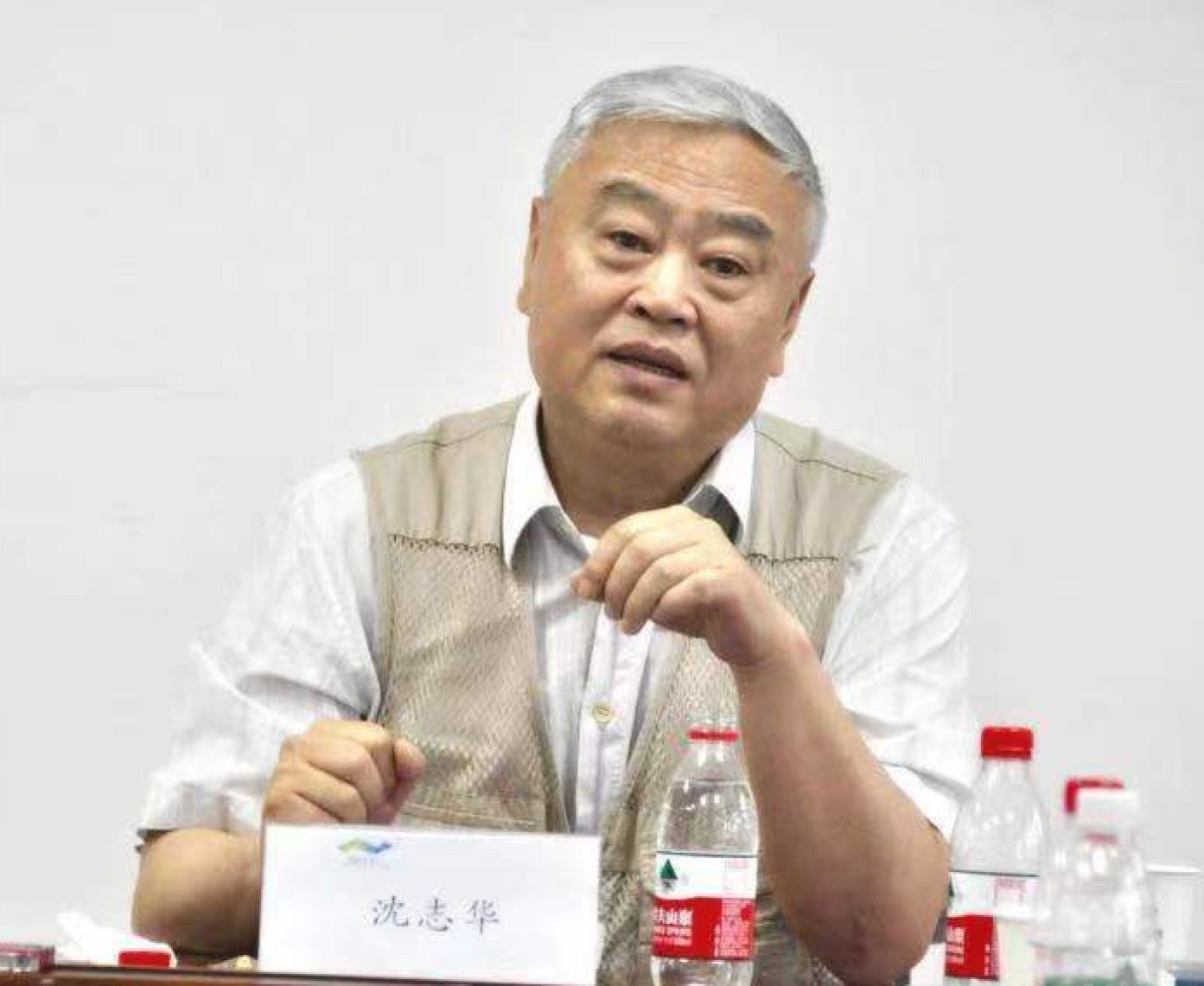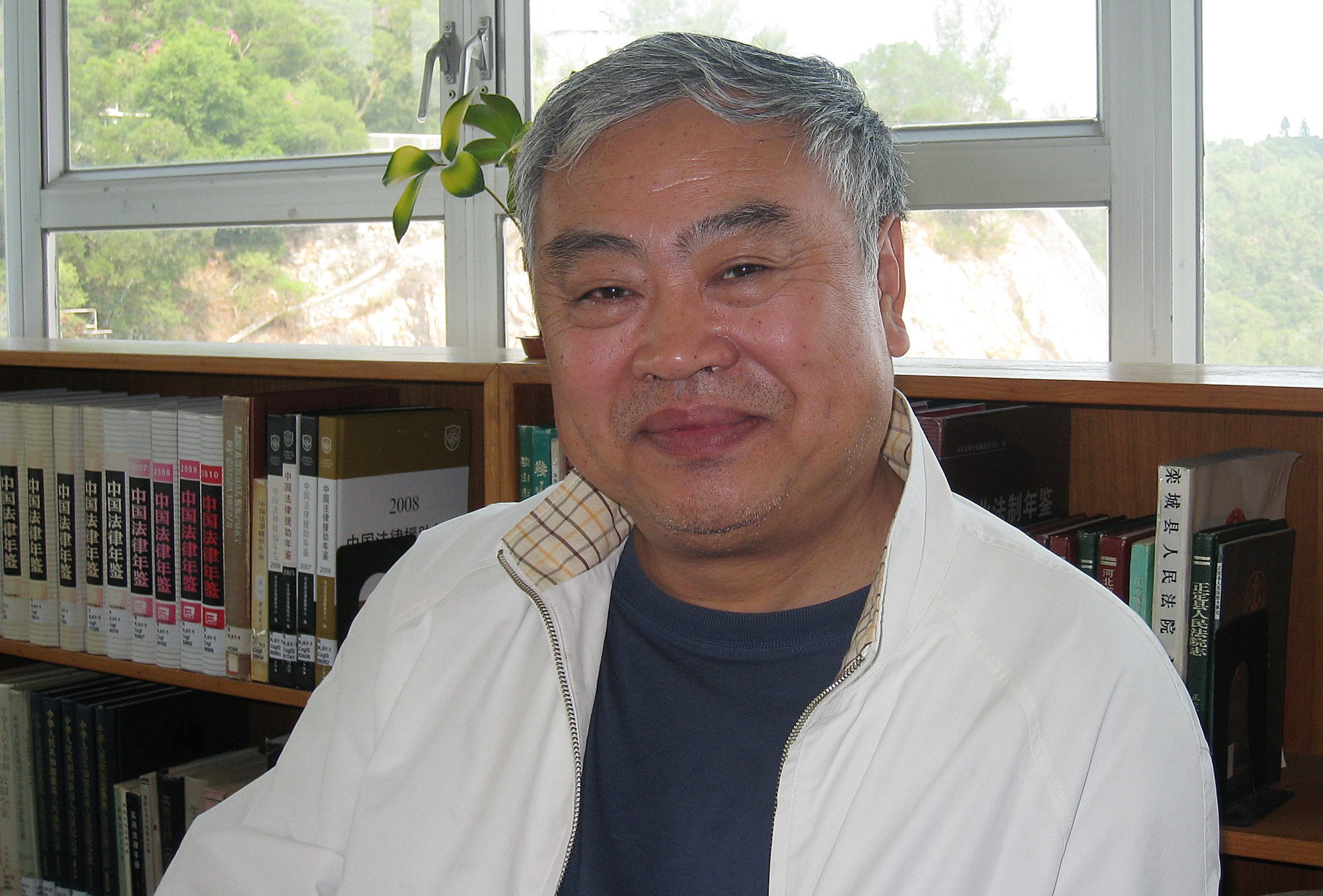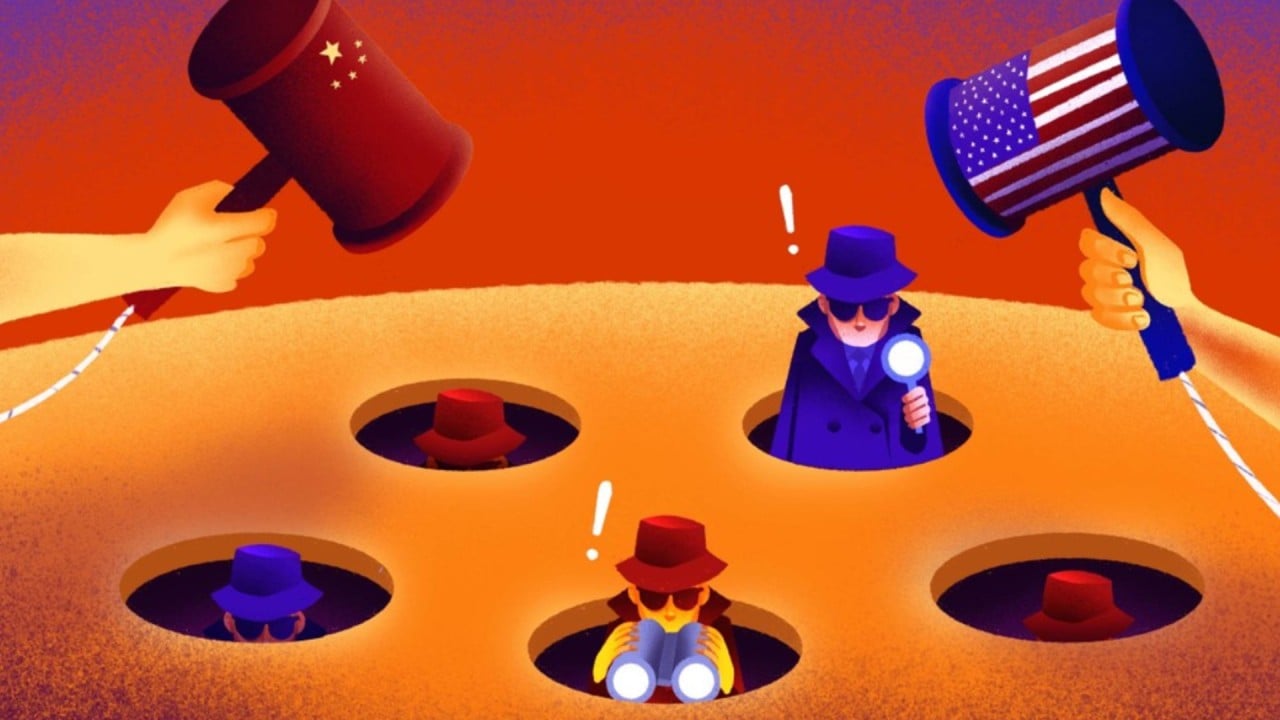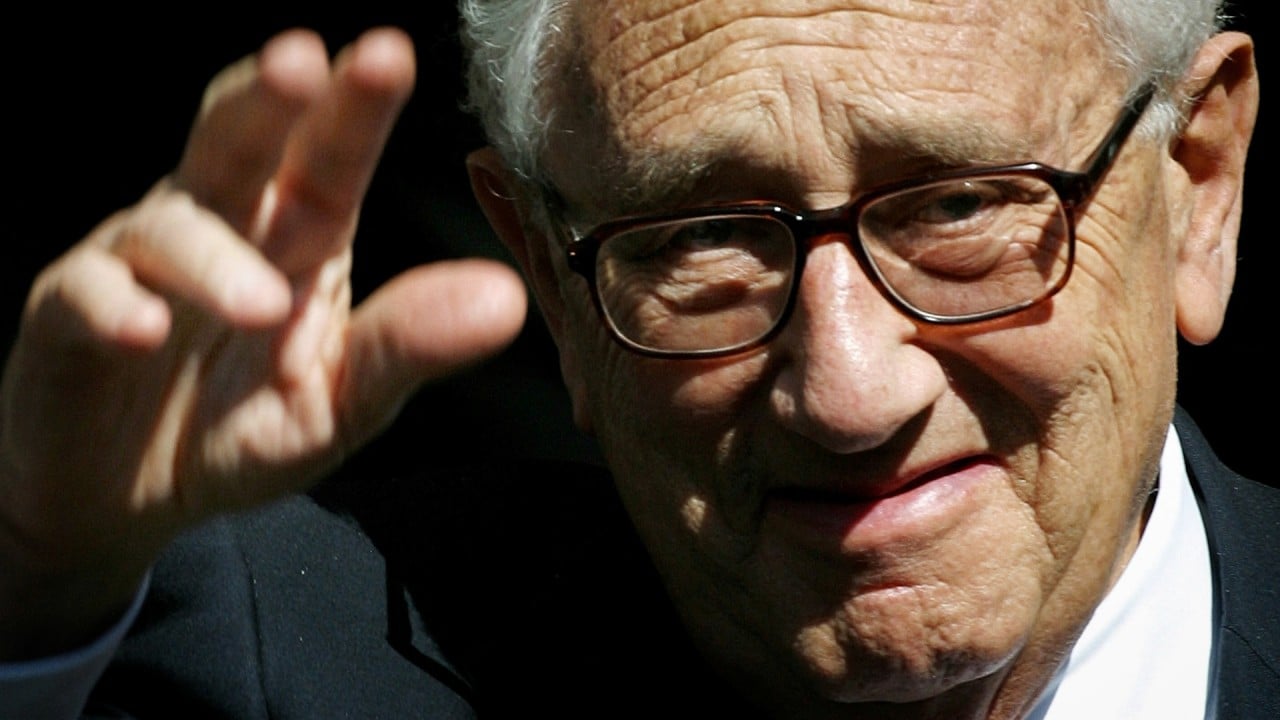However, Kim Il-sung was the leader of North Korea but his authority was given by [Joseph] Stalin, so generally North Korea still followed the Soviet Union.
After China-Soviet relations soured, Mao took a very important step, which was to withdraw all the People’s Volunteer Army forces stationed in North Korea. This meant that China would give North Korea full freedom. Otherwise, wouldn’t Beijing be controlling North Korea with 400,000 troops in such a small place?
So, after 1958, the Kim family established its supremacy in North Korea thanks to Mao. The split between China and the Soviet Union actually gave North Korea more room to survive, because the two countries were facing each other in Northeast Asia, so each wanted to draw North Korea closer. This left the triangular security structure of China-North Korea-Soviet Union unchanged.
But later, after US-China relations thawed, the landscape of Northeast Asia changed. China’s diplomatic goal was to unite the US against the Soviet Union, and North Korea’s diplomatic goal was to unite the Soviet Union against the US, and the three came into conflict.
Now that the relationship between China and the US is strained again, this issue is becoming more complicated.
I haven’t done a specific study on what’s happening now. But I have observed that Russia is now very close to North Korea. Since the deterioration of relations between China and the US, the military alliance between the US, South Korea and Japan has also grown closer.
In your book, you mentioned that many Chinese policymakers and scholars were actually unaware of the real development of China-North Korea relations. Why is this?
The first obstacle is that the archives are not open to society and scholars.
The second is ideological restrictions, especially on textbooks and the findings of academics. There are certain views that have been formed that just cannot be changed. That does not work. As science develops and historical archives continue to be opened, people’s interpretations of history will certainly change.
How can you get to the real history if you do not address these two issues?
This year marks the 75th anniversary of the establishment of diplomatic relations between China and North Korea. National People’s Congress chairman Zhao Leji visited Pyongyang and met [North Korean leader] Kim Jong-un, and both governments are holding commemorative activities. How do you see the future of China-North Korea relations?
Your research involves a lot of historical archives, especially those relating to the Soviet Union. Some of these have just been declassified or are not open to the public. How did you obtain the archives for your research?
I had two sources. The first was the Russian archives. After the dissolution of the Soviet Union, the Russians compiled many archival collections, such as specialised archives on the German question, the Polish question, the military question and the economic question. This part of the archive was very large, and for a while after the collapse of the Soviet Union the management of the local archives was rather chaotic, and I found some of them when I went to Russia in the 1990s.
These archives had many limitations, but something was better than nothing.
There are also the American archives, which are more disciplined and open, and their declassification is strictly enforced by law. Once they reach the 25th year, researchers have the right to ask the authorities to declassify them.
These archives are adequate, like the diplomatic archives I often look at.
China is the worst in terms of the openness of its archives, because they are basically not open to the public. It is very difficult to go into any archive these days and see any material.
The declassification of diplomatic archives can represent the modernisation of a country. The foreign ministry archives were declassified in 2004, which was a sensation. But then it was slowly closed down, perhaps because they felt it was rather sensitive.
You are also an expert on the history of relations between China and North Korea. How did you obtain your information on North Korea?
North Korea’s archives have never been made public, so no one has ever seen them. There are two channels for us to look at North Korean material.
But this is not enough, because what is published is not always true, or at least not complete.
Another source is the record of North Korea’s interactions with other countries. Contacts between diplomats, for example, have been recorded and reported by the other side. Especially numerous were those from the Soviet Union and Eastern Europe. China also has many records, but China does not declassify them.
Why do you think it is important for Chinese people to understand the history of the Cold War?
The Cold War is the phase of history that is closest to us. The structure and development of international relations today have been influenced by it. So we should know how it happened, developed and ended. In this way, we can properly learn the historical lessons. We must not make the mistakes that Stalin made.
This history will also give us a clearer understanding of the changes that are happening now – the full-scale competition between China and the United States.
Your new book, The Economic Vortex, featured economic decoupling between the US and the Soviet Union that led to the outbreak of the Cold War. What made you want to look at US-Soviet relations when your previous expertise was in China-Soviet relations and China-North Korea relations?
Academics have been studying the Cold War for decades, and there are a number of works in English. But there has not been much in-depth research on the subject in China.
In 2017, I was inspired by the trade war between the US and China. At that time, I thought that the relationship between China and the US was quite good, so why was there a trade war all of a sudden? So I wanted to take a fresh look at the history of the relationship between the US and the Soviet Union before the beginning of the Cold War.
I found that in the past, studies of the origins of the Cold War had largely been conducted in the context of international politics, including security issues, geopolitical issues, and ideological issues. However, very few people had analysed the role played by the economic relations between the two countries in plunging them into the vortex of the Cold War.

What are the main arguments you make in your book?
To put it simply, the US designed a post-war international economic structure (including the International Monetary Fund, the World Bank and the proposed but unformed International Trade Organisation) in the hope that the world’s major powers, especially the Soviet Union, would join it. But the Soviet Union, after much deliberation, declined to sign in December 1945, and the US began to have strategic doubts about the Soviet Union’s rejection of international cooperation.
Before this failure, the long but ultimately unsuccessful negotiations between the two sides over the issue of US loans to the Soviet Union was the first domino to fall in cutting the Soviet Union out of the US-dominated global economic system.
The refusal of Moscow and its satellite states to participate in the Marshall Plan for Europe in July 1947 showed that the Soviet Union had decided to cut itself off from the US and its Western world.
Both of these ruptures in US-Soviet relations took place in the economic sphere, suggesting that the post-war world was divided primarily by the failure to establish an international economic organisation.
Therefore, the systemic confrontation during the Cold War first manifested itself in the economy, and the onset of the Cold War began with an economic decoupling.
In this process, both the US and the Soviet Union had strategic misunderstandings about each other, influenced by ideology.

Does this page from history hold any lessons for US-China relations today?
I think the most fundamental mistake Stalin made was to completely decouple [the Soviet Union] from the US and create an internal cycle within the socialist camp. So there cannot be economic decoupling.
After the second world war, economic integration was a growing trend, but because of the conflicts between the US and the Soviet Union, economic cuts were artificially created.
Stalin was worried that if he could not cooperate with the West, he would have to control all the countries in his sphere of influence, otherwise he would be pushed away by the West and the Soviet Union would be isolated.
Therefore, after deciding not to join the Bretton Woods system, the Soviet Union organised its own Council for Mutual Economic Assistance (Comecon). Stalin later proposed “two parallel world markets” to cut off the Western countries.
This was extremely damaging for the Soviet Union. The economic circle of the socialist camp was cut off from the outside world, preventing the exchange of goods and technology. They did not benefit from the rapid development of the other side. Twenty years later, the economic gap had widened.
In terms of GDP, the Soviet economy was still developed in the 1970s because of its heavy industry base. But in reality, the gap between it and the US in science and technology was growing. This was because the Soviet Union’s capabilities were concentrated in the defence industry.
In the late 1970s and early 1980s, Eastern European countries were slowly drawn into international economic organisations.
By the time of [former Soviet leader Mikhail] Gorbachev’s reforms, the Soviet Union had also begun to apply for membership of the International Monetary Fund and the World Bank, but about a month after it was accepted, the Soviet Union collapsed.
A dominant view among American historians is that the Cold War was inevitable. What is your view?
History cannot be unlived. But I believe that the Cold War was not inevitable. According to my research, every step that led to the Cold War had a chance of being reversed, but the US and the Soviet Union still fell into the abyss of the Cold War.
In terms of the causal relationship between changes in diplomatic and economic policy, the hardening of the US diplomatic approach towards the Soviet Union was a prerequisite for a complete change in economic policy, while the overall shift in the Soviet Union’s diplomatic approach towards the US was the result of a complete disappointment with the US in economic policy.
Thus, looking at the process of the Cold War, it was undoubtedly the US that started the “engine”. But the Soviet Union was not innocent. On the one hand, it is often said that the US misinterpreted the motives of the Soviet Union, and while there was certainly an ideological bias inherent in US policymakers, in many cases it was Moscow’s inappropriate or aggressive behaviour that triggered the misinterpretation and provided Washington with the tools to change its policy and mobilise public opinion.
Returning to today’s US-China relations with the lessons of this history, we can conclude that every detail matters.



